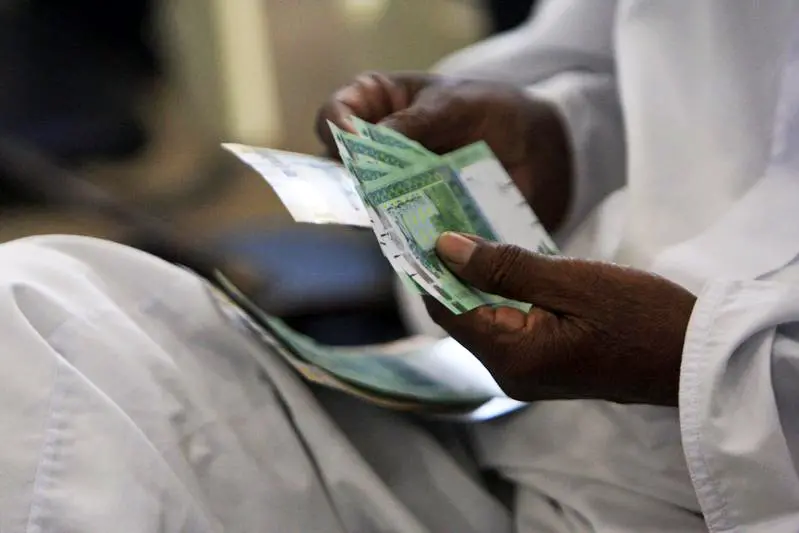PHOTO
KHARTOUM - Sudan has for the first time in 20 years begun receiving foreign currency inflows, the central bank said on Wednesday, days after the U.S. government lifted decades-old trade sanctions on the northern African country.
A statement by the bank confirmed the receipt of international transfers in U.S. dollars to two Sudanese banks, in what was the first signal of recovery for Sudan's battered economy.
The decision to suspend sanctions and lift a trade embargo, unfreeze assets and remove financial restrictions came after a U.S. assessment that Sudan had made progress on counter terrorism cooperation and resolving its long internal conflicts such as in Darfur.
Khartoum is hopeful that the sanctions decision will help it regain access to global financial markets which could help draw in badly needed investment and raise prospects for a recovery.
The Sudanese economy has struggled more since the south seceded in 2011, taking with it three-quarters of the country's oil output, its main source of foreign currency and income for President Omar al-Bashir's government.
Price rises have been compounded by the government's decision late last year to cut fuel and electricity subsidies in a bid to tighten its finances.
Petrol prices rose by about 30 percent, leading to a jump in broader inflation to 35.13 percent in September from 34.61 in August, according to the state-run Central Statistics Office.
"Prices rise every day, especially the prices of meat and oil and other such staples," said Ahmed Nour, 47, a banker. "My income is not enough to cover my family's needs and the situation is difficult."
(Reporting by Khalid Abdelaziz; writing by Nadine Awadalla; editing by Patrick Markey/Mark Heinrich) ((Nadine.Awadalla@thomsonreuters.com;))
A statement by the bank confirmed the receipt of international transfers in U.S. dollars to two Sudanese banks, in what was the first signal of recovery for Sudan's battered economy.
The decision to suspend sanctions and lift a trade embargo, unfreeze assets and remove financial restrictions came after a U.S. assessment that Sudan had made progress on counter terrorism cooperation and resolving its long internal conflicts such as in Darfur.
Khartoum is hopeful that the sanctions decision will help it regain access to global financial markets which could help draw in badly needed investment and raise prospects for a recovery.
The Sudanese economy has struggled more since the south seceded in 2011, taking with it three-quarters of the country's oil output, its main source of foreign currency and income for President Omar al-Bashir's government.
Price rises have been compounded by the government's decision late last year to cut fuel and electricity subsidies in a bid to tighten its finances.
Petrol prices rose by about 30 percent, leading to a jump in broader inflation to 35.13 percent in September from 34.61 in August, according to the state-run Central Statistics Office.
"Prices rise every day, especially the prices of meat and oil and other such staples," said Ahmed Nour, 47, a banker. "My income is not enough to cover my family's needs and the situation is difficult."
(Reporting by Khalid Abdelaziz; writing by Nadine Awadalla; editing by Patrick Markey/Mark Heinrich) ((Nadine.Awadalla@thomsonreuters.com;))





















